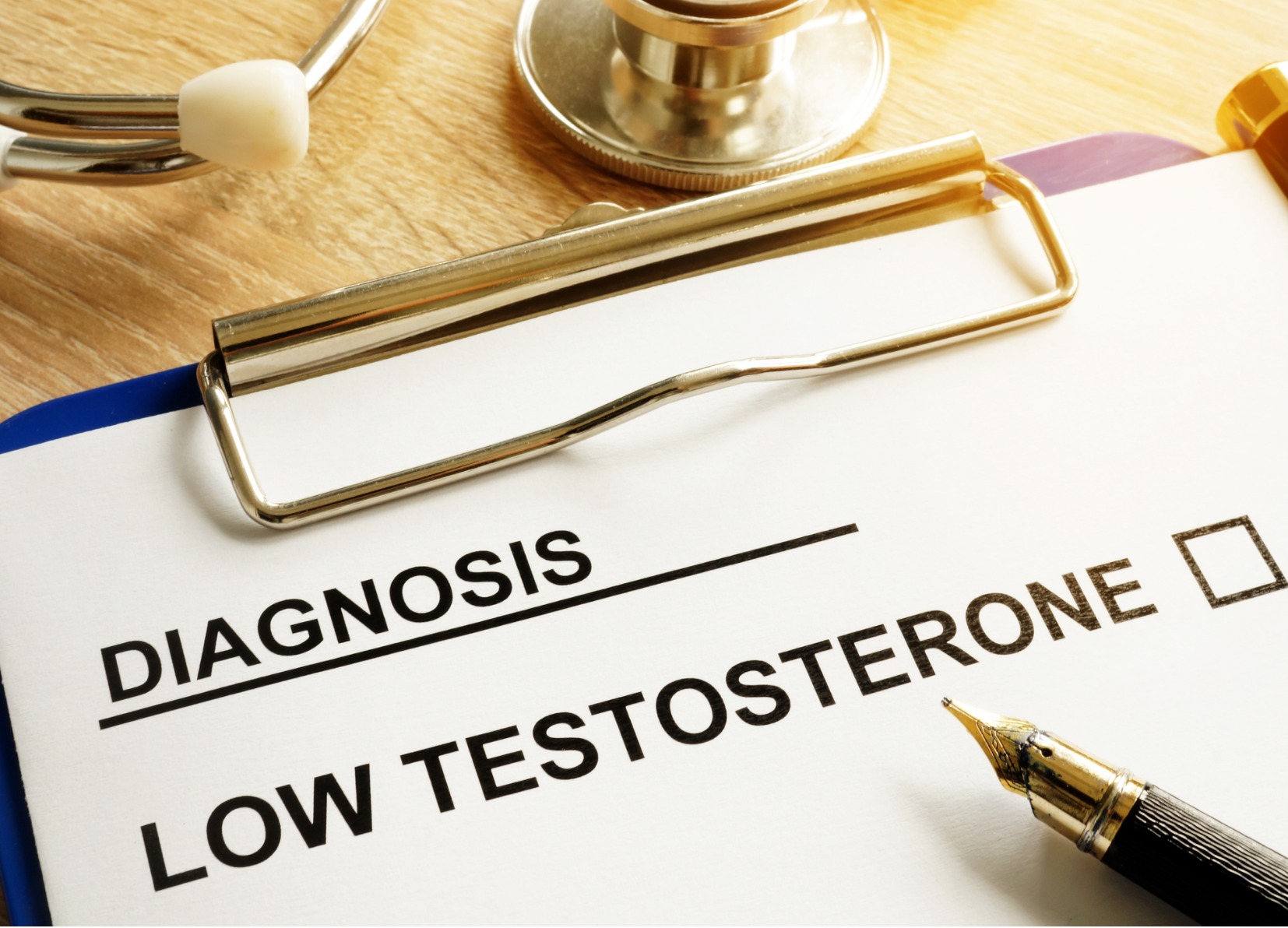Testosterone is an important hormone that can be found in both males and females, but men have higher levels of it than women. It helps them to maintain muscle mass, increases their sex drive and assists with sperm production, making this one of the fundamental hormones when trying to conceive. However it’s estimated that men’s testosterone levels begin to decrease by up to 2% a year once they are over the age of 30.
Below, you can find out more about the causes and impacts of low testosterone, as well as whether it can have an impact on your fertility.
What does low testosterone mean?
Low testosterone can occur when a man isn’t producing as much testosterone as he should be. The level of this hormone is measured in nanograms per decilitre (ng/dL) and can be determined by a blood test. The average man has from 300 to 1,000 ng/dL in the blood. Women generally have much less testosterone in their system, and will have between 15 and 70 ng/dL.
A man would be considered to have low testosterone if the bloodwork showed less than 300 (ng/dL). If the blood test was performed and this was found to be the case, a doctor might be able to provide you with some advice or treatment options. They may even refer you to an endocrinologist (a doctor who specialises in hormone problems and treatments).
What can cause low testosterone?
Low testosterone becomes more common as men get older. In fact, it is most common in men aged 45 and over because the hormone gradually decreases as you get older.
In rarer cases, a person might have a condition called hypogonadism. This condition is when the testicles produce little to no testosterone and it can occur at any age. It can be brought on by testicular injury or infection, chemotherapy or radiotherapy, some medications like corticosteroids or alcohol or drug abuse. It is also more common in those who are obese or have type 2 diabetes. Sometimes it is present from birth, though this is very rare.
A blood test can determine whether your testosterone levels are low or within the normal range. If they are low, more tests can be done to officially diagnose you with hypogonadism.
How do you know if you have low testosterone?
Testosterone is important for men because it increases sex drive, maintains muscle mass and strength and promotes red blood cell production. Only a blood test can confirm whether you have low levels of testosterone, but besides having a blood test, how can you tell if you have low testosterone?
Generally, the symptoms of low testosterone can include a low or reduced sex drive, fewer erections (and even erectile dysfunction), hot flashes, hair loss, extreme or persistent tiredness, decreased muscle mass, increased body fat (particularly around the belly and chest to form ‘man boobs’), smaller testicles, brain fog and mood changes.
However, having one or more of these symptoms doesn’t necessarily mean that you have low testosterone, as many of them can be caused by other things.
Other causes include excessive alcohol consumption, smoking, stress or anxiety, lack of sleep, a poor diet or lack of exercise. Therefore, it might be worth reviewing your lifestyle and general wellbeing before seeing a doctor. For instance, drinking lots of beer can increase the oestrogen production in your body and might be the reason for developing ‘man boobs’ and a larger belly.
Does low testosterone cause infertility?
Low testosterone doesn’t usually have a big impact on fertility or make a man infertile. This is because sperm production doesn’t purely rely on testosterone and there are other hormones involved, like follicle-stimulating hormone (FSH). It also doesn’t generally affect sperm motility, or morphology.
While it won’t make you infertile, low testosterone could make it harder for a couple to conceive, and the process could take longer too. This is because you may experience limited or reduced sperm production and reduced sex drive. With the latter, couples who are trying to conceive may not be having sex at the optimum time for conception, which is why the process could take longer than in other couples who are having more regular sex.
You may be able to optimise your sperm health in other ways to increase your chances of conceiving should your testosterone levels be on the low side.

